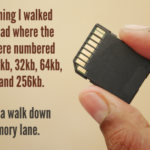A District Court judge in Michigan has dismissed class-action claims made by a plaintiff that debt collection calls made by a creditor to a consumer’s cell phone without consent in an attempt to reach the plaintiff’s brother violated the Telephone Consumer Protection Act because the equipment used by the defendant to make the calls did not include a random and sequential number generator, as required to meet the definition of an automated telephone dialing system following the Supreme Court’s ruling in Facebook v. Duguid.
A copy of the ruling in the case of Barry v. Ally Financial can be accessed by clicking here.
This case had been stayed pending the outcome of Facebook before the Supreme Court, and once that ruling was issued, the judge in this case ordered the plaintiff to show cause why that ruling should not be considered in this case. Her argument was that because the equipment used by the defendant had the capacity to story or produce numbers using a random or sequential number generator, she was entitled to discovery and that the case should not be dismissed.
There was little doubt that the calls made to the plaintiff were not random, because the intention was to try and reach her brother. Undoubtedly, the calls made to the plaintiff came from a stored list. Had the numbers been generated randomly or sequentially, there was no way of knowing whether a number was associated with a specific account.
Thus, requiring the equipment only possess the capacity to dial random and sequential numbers “would have the effect of imposing liability on a defendant whenever it has such a system, with admittedly no nexus to the alleged harm to the plaintiff,” wrote Judge Paul Borman of the District Court for the Eastern District of Michigan, Southern Division. ” … these calls were targeted at specific individuals in connection with specific accounts held by Defendant. That ends this case.”









